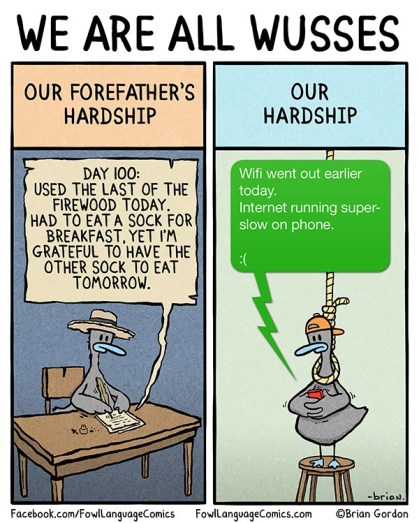I’ve recently had the pleasure of spending more time with my father than the busy-ness of our lives usually allows, and it’s reminded me that besides being one of my favorite people in the world, my dad can also be a hugely entertaining story-teller.
He’s now approaching his 85th birthday, and somewhere along the line must have decided that I too am an adult, since I’ve been getting to hear an unadulterated and much more illuminating version of his life story. Here’s a recent exchange for example:
Dad: So your mom was really struggling and stressed out with the first baby. I didn’t know how to help her so I decided to get her pregnant with the second one.
Me: Uhhh…
Dad: You know, so she’d rest a little more. But the second one didn’t help at all.
Me: Wait, what??
Dad: Oh sorry, I forgot that you’re the second one.
Putting aside the convoluted decision tree that could possibly lead to “the best way to help a woman overwhelmed by the work of having one baby is to get her pregnant with a second baby,” thanks for filling me in on my origin story dad, it explains a lot!
My dad has had a rich and interesting life. He was born in a small village in Greece in 1931 and remembers World War II and its aftermath in Europe, as well as the culture shock of arriving in Canada in the 1950’s and working to build a new life here. He’s faced a lot of adversity and setbacks in his life, but the only time he gets emotional in the retelling is when he connects with the moments of kindness and generosity (from friends and complete strangers) that have also shaped his story.
I was struck by thinking that if I’m in his shoes one day, if my daughter is hearing my life story, it’s going to be markedly less interesting than my dad’s.

Reprinted with permission, FowlLanguageComics.com
Not just because I’m a less entertaining story-teller (I am), but because the things that have challenged and confronted me in my life have largely not come from in front of me but from within me. While my dad’s tale would be classified as an action-adventure, mine would be more of a psychological thriller.
Acceptance and Commitment Therapy (ACT for short) argues that while our minds are well suited to assessing and solving external problems, at this point in human history we (in the 1st World at least) are most disturbed by the internal problem of holding difficult feelings and emotions, and it is this internal problem that causes much of our suffering.
For example, imagine this 1st World problem: “The lineup at this Starbuck’s is sooo long.” We can use our minds to solve this external problem by avoiding it. We can decide to forego the coffee altogether, or to seek out an alternate supply; problem solved!
We might also choose to endure the wait, in which case the external problem can become an internal one as well (the ‘problem’ of feeling bored, resentful, frustrated, etc.) Our minds may once again come to the rescue, but when it comes to easing difficult emotional states, the mind’s solution repertoire can be limited. Mind can tell us to distract ourselves from boredom by going on our phone or daydreaming, or to ease our sense of indignation by staring down the barista as if she’s personally responsible for the line-up…
In this example, treating an internal experience as a problem isn’t particularly problematic (except maybe for the unfortunate barista being glared at), but a lived life offers no shortage of difficult emotional states: “My heart is broken, I can’t stand it.” “I feel so ashamed.” “I’m so scared, I’m paralyzed.”
While mind might say the solution to these negative emotions is to avoid them, ACT argues that it is actually the attempt to avoid them that causes the negative emotions to persist, and – more importantly – the time, focus and energy we’re putting towards the avoidance of emotional states is time, focus and energy we’re not using in the service of what we truly value.
I don’t doubt my dad has had many difficult emotional experiences to contend with in the course of his life, I am personally responsible for a couple of them. But whether by temperament or by circumstance, he takes a very ACT-endorsed approach to emotions: notice them, acknowledge them, feel them, and do all of that while you’re also doing what you were doing, unfolding the latest chapter of your adventure.
